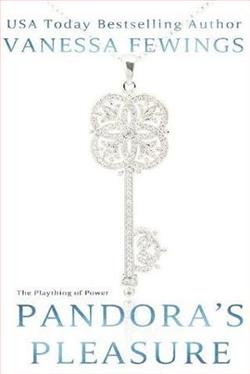Page 32 of Royal Love
“Yes, that’s Queen Amelia,” I answer, unable to keep the pride from my voice.
“She’s pretty,” the girl declares matter-of-factly.
“I think so too,” I agree, catching Lia’s eye and the blush spreading across her cheeks.
The questions continue—do I wear my crown to bed (no), do I eat cake every day (I wish), can I put people in the dungeon (absolutely not, and we don’t have dungeons anymore). Throughout it all, I’m acutely aware of Lia watching, her smile growing as the children’s enthusiasm builds.
When Shannon guides them toward the historical displays, I make my way back to Lia’s side. “How are you holding up?”
“I’m fine,” she assures me, though I don’t miss the way her hand trembles slightly against the armrest. “They’re wonderful.”
Before I can suggest she take a break, the teacher approaches us, a shy little girl with glasses half-hidden behind her skirt.
“Your Majesties, Emma has a question she’d very much like to ask the queen, if Her Majesty is feeling up to it.”
Lia straightens immediately, her entire demeanor softening as she focuses on the child. “Of course. What would you like to know, Emma?”
The girl peeks out, her voice barely above a whisper. “Is it true you’re going to have a baby?”
The room doesn’t quite fall silent, but several nearby children pause in their explorations, clearly interested in the answer. Our pregnancy is public knowledge, but these children probably don’t know that, so Lia will probably play along.
Lia handles it with perfect grace. “Yes, Emma, it’s true. But it’s a bit of a secret right now, so we’d appreciate if you’d help us keep it quiet for a little while longer.”
Emma nods solemnly, clearly thrilled to be entrusted with royal confidences. “My mom says you’ll be a good mom because you’re kind. Like the old queen was.”
I watch Lia’s face carefully, knowing how deeply she feels the weight of comparison to my mother, whose charitable works and gentle manner made her beloved throughout the country. My mother, who spent more time with sick children in hospitals than at state dinners. My mother, whose absence still aches like a phantom limb some days.
“That’s very kind of your mom to say,” Lia replies, her voice steady though I can see the emotion behind her eyes. “Queen Eleanor was an extraordinary woman. I can only hope to be half as good with children as she was.”
“Can I…” Emma hesitates, then rushes forward. “Can I touch your hand? My mom says I should ask.”
“Of course you may.” Lia extends her hand, and Emma places her small fingers against Lia’s palm with reverent care.
Something shifts in the room then. Perhaps it’s the way Lia leans forward, her full attention on this one child as if she’s the most important person in the world. Or maybe it’s how naturally she draws Emma into conversation, asking about her school and her favorite subjects.
Whatever the catalyst, within minutes, Lia is surrounded by children. They approach cautiously at first, then with growing confidence as she welcomes each one with genuine interest. She listens to their stories with the same attentiveness she gives to prime ministers and diplomats. When a little boy proudly shows her his missing tooth, she reacts with appropriate awe.
I take a step back, content to watch from the periphery. This is Lia in her element—the woman I fell in love with showing through the royal facade we both maintain in public. The woman who became my queen through an arranged marriage, butwho captured my heart so completely, I sometimes forget our beginning was orchestrated by others.
“She’s a natural,” Shannon murmurs, appearing at my elbow. “Just like your mother was.”
“Better,” I say quietly, watching as Lia helps a little girl fashion a paper crown from supplies the creative teacher must have brought along. “My mother was born into this world. Lia adapted to it beautifully.”
Fell in love with me, I think but don’t say. Even now, after everything we’ve been through in our marriage, the transformation of our arranged union into something so deep and genuine sometimes strikes me with the force of revelation.
I glance at my watch, realizing we’ve already exceeded the hour I’d promised Dr. Bennett. But Lia shows no signs of flagging. If anything, she seems energized by the children’s presence, her earlier pallor replaced by a healthy flush.
One of the boys tugs at my sleeve, pulling me from my thoughts. “King Tristan, sir? Do you want to see the dragon I drew?”
I crouch down to his level. “I absolutely do.”
For the next half hour, I find myself fully immersed in the children’s world, admiring drawings, answering earnest questions, and even joining in when they decide to build a “castle” from cushions. Through it all, I keep Lia in my peripheral vision, monitoring her for any signs of fatigue.
When the teacher finally announces it’s time to leave, there’s a chorus of disappointed groans. Lia has ended up seated on a cushion on the floor, surrounded by a circle of attentive faces as she tells them a story I recognize—one from the book of folklore my mother used to read to me.
“Perhaps we can visit again someday,” she promises as they reluctantly gather their things.
As the children file out, many of them offering careful bows and curtsies in farewell, Emma hangs back, approaching Lia one last time.















